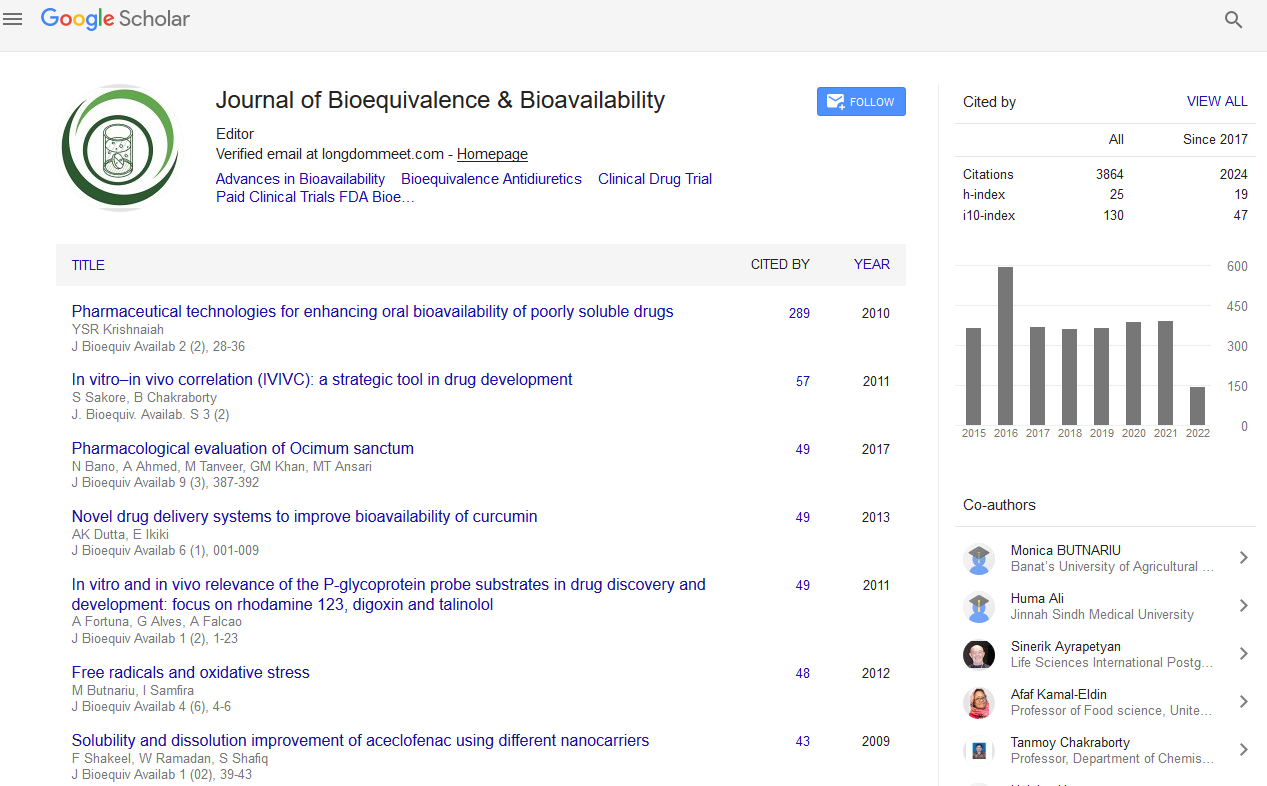PMC/PubMed Indexed Articles
Indexed In
- Academic Journals Database
- Open J Gate
- Genamics JournalSeek
- Academic Keys
- JournalTOCs
- China National Knowledge Infrastructure (CNKI)
- CiteFactor
- Scimago
- Ulrich's Periodicals Directory
- Electronic Journals Library
- RefSeek
- Hamdard University
- EBSCO A-Z
- OCLC- WorldCat
- SWB online catalog
- Virtual Library of Biology (vifabio)
- Publons
- MIAR
- University Grants Commission
- Geneva Foundation for Medical Education and Research
- Euro Pub
- Google Scholar
Useful Links
Share This Page
Journal Flyer

Open Access Journals
- Agri and Aquaculture
- Biochemistry
- Bioinformatics & Systems Biology
- Business & Management
- Chemistry
- Clinical Sciences
- Engineering
- Food & Nutrition
- General Science
- Genetics & Molecular Biology
- Immunology & Microbiology
- Medical Sciences
- Neuroscience & Psychology
- Nursing & Health Care
- Pharmaceutical Sciences
Study design: How not to ruin a perfectly good product with a perfectly fl awed study design
International Conference and Exhibiton on Pharmaceutical Regulatory Affairs
6-7 September 2011 Baltimore, USA
Debbie Wilkerson
Scientific Tracks Abstracts: JBB
Abstract:
N o two studies are alike, however there are many principles that carry across all studies for both drugs and devices. Th ese principles are discussed in the domestic and international regulations: ICH E6, ICH E8, FDA CFR Title 12: 312, FDA CFR Title 12: 812, ISO 14155:2011. Th is presentation will discuss certain key principles and how to apply them to your study design. Why don?t studies always show statistical signifi cance for their primary endpoint(s)? Th ere are many reasons for this, the fi rst of which is an ineff ective product. Sometimes products just don?t work as they are projected too. However, properly designed studies may be able to catch an ineff ective product earlier in the development phase cycle ? and the sooner it is determined that a product is ineff ective, the more money saved for the developer. A second reason that many studies fail to show statistical signifi cance is because they were poorly designed or implemented. Examples of this include: underpowering, inappropriate patient population, poor comparison group/controls, or the wrong dosing. Th is presentation will discuss the diff erent types of study designs, and how small changes can make a big diff erence in the outcome of your study
Biography :
Dr. Wilkerson and Dr. Baker have complementary and integrated expertise, forming an extremely powerful and knowledgeable research leadership team. Both have extensive experience in US and global product development for drugs, biologics and devices. Additionally, both have led clinical project/programs and/or departments and served as project advisors on numerous project teams, and have been responsible for the strategic planning of development programs for drugs, biologics, and devices in a variety of therapeutic areas. They have published more than 20 articles in reputed journals. Dr. Wilkerson holds her PhD in Biochemistry from the Stanford University School of Medicine, where she was a National Science Foundation Pre-Doctoral Fellow. Dr. Baker holds her PhD in Biometry and Epidemiology from the Medical University of South Carolina.


